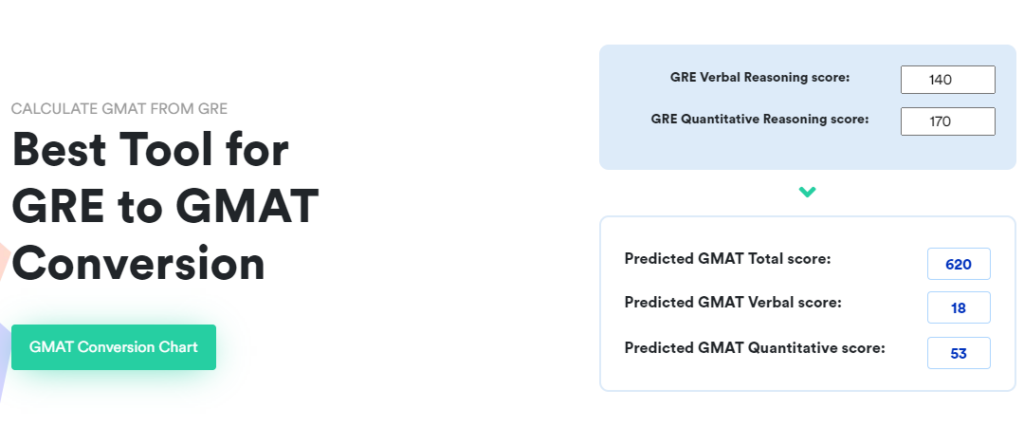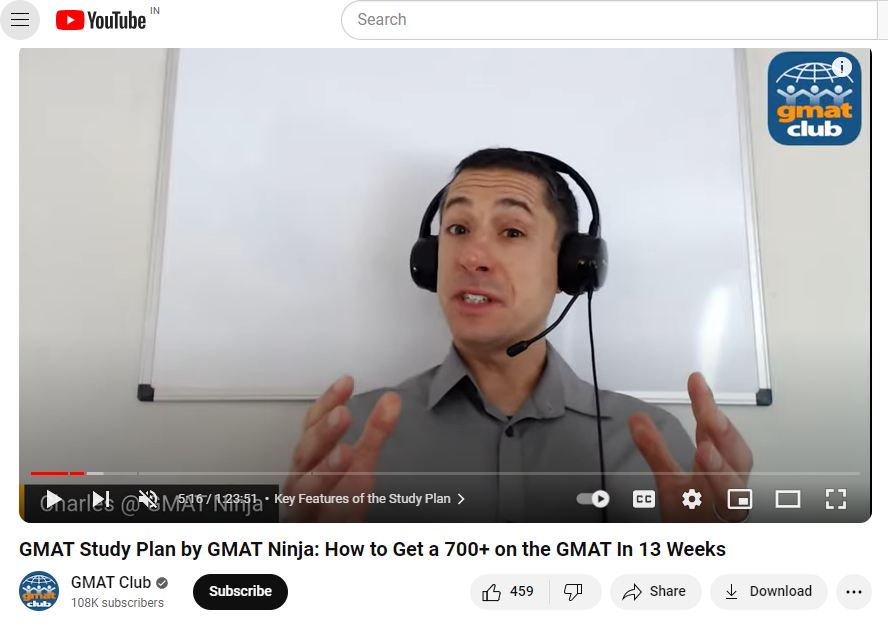Most students like you start to wonder about GMAT vs GRE when they plan to study abroad. Even more so if they’re looking to pursue business or graduate programs.
Although both exams are gateways to prestigious programs worldwide, choosing the right one can truly impact your admission process.
We’ve prepared a guide to help you understand the differences between the GRE and GMAT.
GMAT vs GRE: A Summary of the Differences
| Feature | GMAT (Old Format) | GMAT Focus Edition | GRE (Old Format) | GRE (New Format) |
| Purpose | Primarily for business school admissions | Primarily for business school admissions with a streamlined format | Accepted by a wide range of graduate programs | Accepted by a wide range of graduate programs |
| Test Structure |
|
|
|
|
| Question Types |
|
|
|
|
| Scoring | Scores range from 200 to 800 | Scores range from 205 to 805, allowing for differentiation from the standard GMAT scores | Verbal and quantitative sections scored from 130 to 170 each, with 0–6 scoring for Analytical Writing | Verbal and quantitative sections scored from 130 to 170 each, with 0–6 scoring for Analytical Writing |
| Test Duration | About 3 hours and 7 minutes | 2 hours and 15 minutes (plus one optional 10-minute break) | About 3 hours and 45 minutes | About 1 hour and 58 minutes |
| Test Adaptivity | Question-level adaptive | Question-level adaptive | Section-level adaptive | Section-level adaptive |

Both the GMAT and GRE have undergone a few changes, as you can observe.
Which is easier, GMAT or GRE?
Which is better/easier, GRE or GMAT, depends on your strengths and weaknesses. If you excel in quantitative and analytical skills, you might find the GMAT more suitable.
If you have a strong vocabulary, the GRE might be the better option for you. The GMAT vs GRE difficulty varies per individual, so consider your academic background and career goals when choosing.
Should I take the GMAT or GRE?
Deciding whether to take the GMAT or GRE can overwhelm you. Here’s a simple guide to help you choose:
To choose between GMAT or GRE, consider your program. MBA programs traditionally prefer the GMAT, but many are flexible and accept the GRE. For non-business graduate programs, the GRE is usually the go-to test.
Also look at your career goals. For careers in investment banking or management consulting, a high GMAT score can be beneficial.
Keep in mind that the GRE offers more flexibility if you’re considering multiple types of graduate programs.
Remember, which is better, GRE or GMAT, depends on your personal strengths, program requirements, and career aspirations.
If you’ve already taken your GRE and have your score, you can check your potential score on the GMAT by converting your GRE to a GMAT score.
Also Read: Understanding Your GRE Score: Result, How to Check, Validity & More

Note: We recommend taking some free tests for both the GRE and GMAT to see where you stand. Once you’ve decided whether to take the GMAT or GRE, turn to GradRight to help you select the right university (with SelectRight) and get your finances in order (with FundRight).
How to apply for GRE and GMAT?
Once you’ve looked into the GMAT vs GRE difficulty, you can look into applying for either exam.
- Applying for the GRE and GMAT involves the following steps:
- First, create an account for your GMAT or GRE exam. Register on the official ETS website for the GRE or the GMAC website for the GMAT.
- Next, choose a test date – select a date that gives you ample time to prepare and falls within your desired application deadlines.
- Thirdly, prepare your documents. Have your identification and payment method ready.
- Lastly, study and prepare. Utilise resources like official guidebooks, practice tests, and prep courses to prepare yourself for the exam.
- Gmat Ninja posts some really helpful study videos on YouTube, for both GMAT and GRE..
- Take the test: On test day, ensure you have your ID and confirmation letter, and arrive early.
Also Read: Understanding the GMAT Evaluation Process

How to prepare for the GRE and GMAT?
Preparing for graduate-level admissions tests like the GRE and GMAT can be difficult.
With the right strategies and resources, you can navigate your preparation journey and achieve a high score. This section provides a comprehensive guide to help you prepare for both exams.
Creating a study plan for GMAT and GRE
A balanced study plan should include:
- Daily study sessions
- Weekly goals
- Rest days
Apart from this, you must create a personalised study plan to ace your exam. Start by assessing your baseline performance in each section of the exams by taking a practice test. Identify your strengths and weaknesses to allocate study time effectively.
Practice tests are invaluable for preparing for the GRE and GMAT as they help you:
- Familiarise yourself with the exam format and question types.
- Identify areas for improvement.
- Develop stamina for the test day.
Take full-length, timed practice tests under conditions as close to the actual test as possible. Analyse your performance after each test to keep improving.
How to manage time to prepare for GMAT or GRE?
Effective time management is key to success on both exams. Practice pacing yourself through each section during practice tests. Learn to recognize when to move on from a question to avoid getting stuck and wasting valuable time.
We recommend identifying your weak areas early in your preparation and allocating more time to improving these.
Additionally, you can use time management tools like timers, apps, or study planners to keep track of your study sessions and breaks.
Also Read: GMAT or GRE
FAQs: GMAT vs GRE
1. How many times can I attempt the GRE and GMAT?
You are allowed a maximum of 5 attempts in a year for the GMAT exam and can take a 16-day gap between each of those attempts. You aren’t allowed to take more than eight attempts in a lifetime.
You can attempt the GRE exam 5 times in a year, but you need to wait 21 days between each attempt. As for the lifetime cap? There isn’t any on the number of times one can take the GRE exam
2. Are there any free resources for GMAT or GRE preparation?
Both the ETS and GMAC offer free resources, including practice tests and sample questions
Do business schools have a preference for GMAT vs GRE scores?
Some schools have a preference for the GMAT, but increasingly, many are treating both exams equally.
3. Which exam is more expensive, GMAT or GRE?
There are a few differences between gre and gmat; the fee is one of them.The GMAT is slightly more expensive. While the GRE fee is $2280 (₹18,226), the GMAT fee is $275 (₹22,784) for the exam taken at a test centre and $300 (₹24,855) for the GMAT given online from home.
4. Do the GRE and GMAT exams have an expiry date?
Both are valid for 5 years, respectively.


















